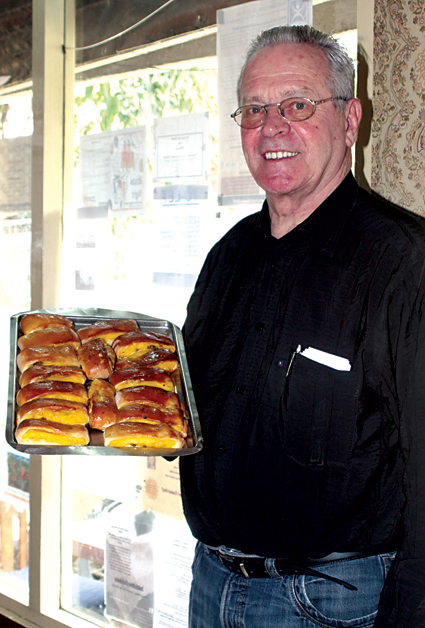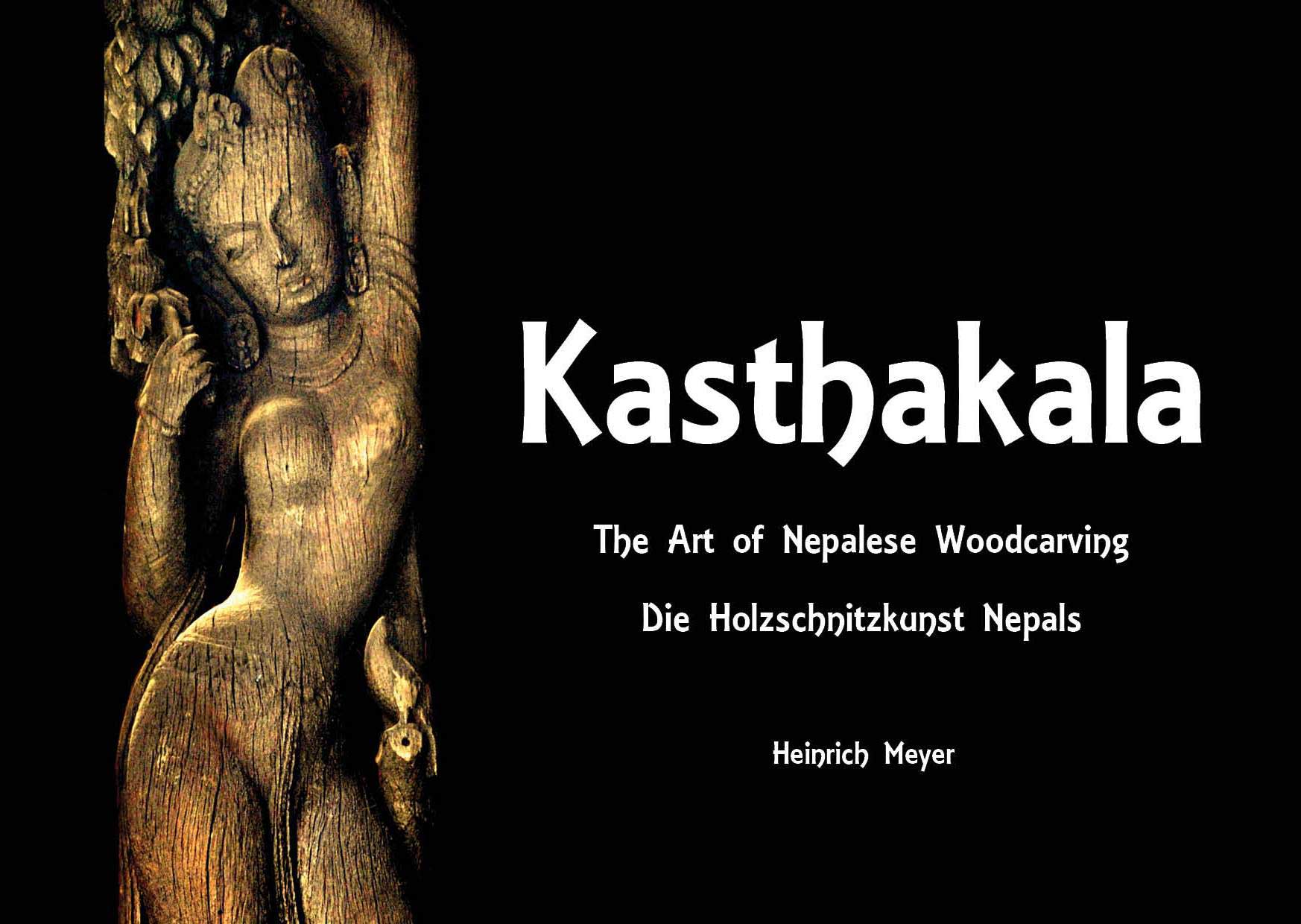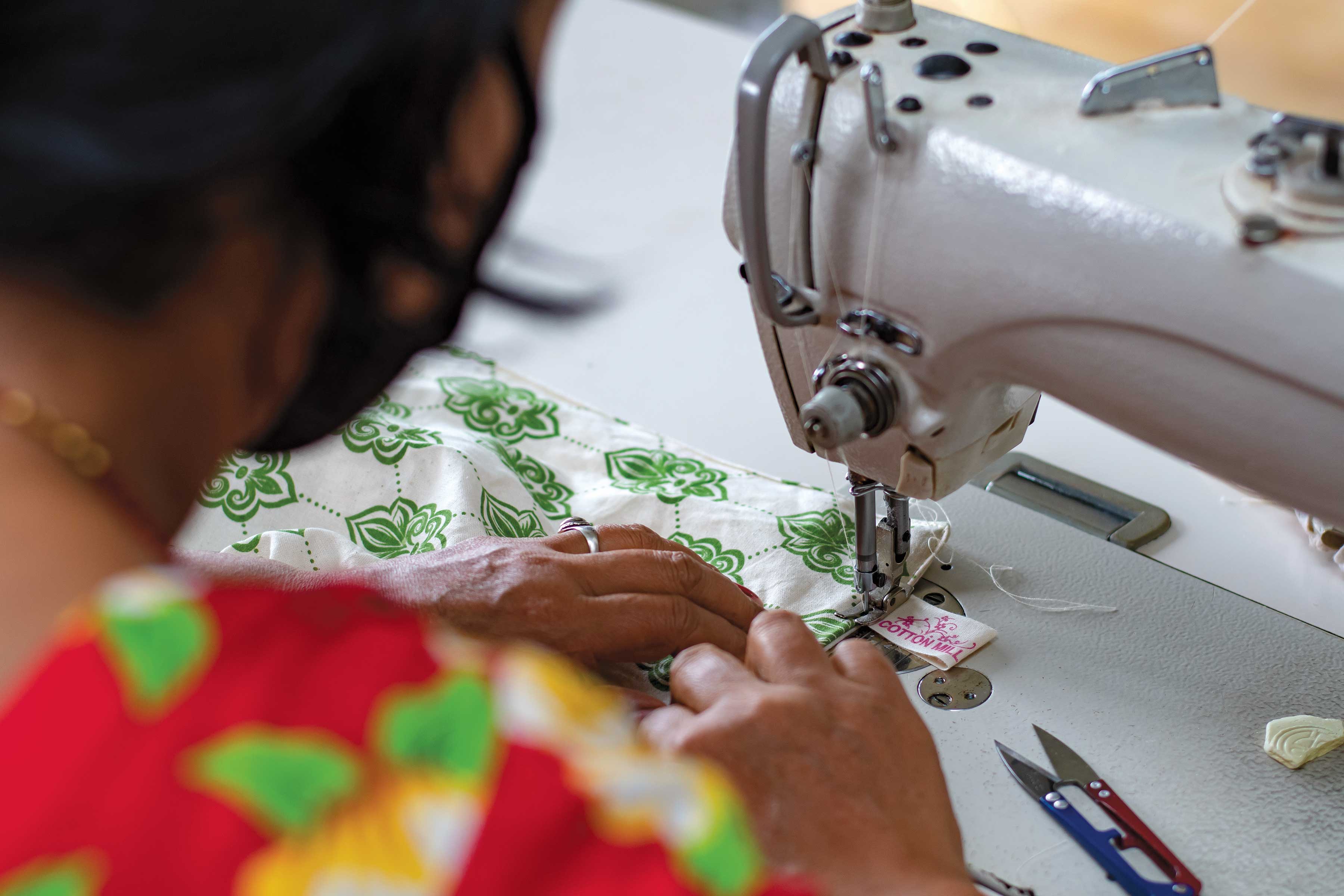Encounters with foreigners in the nooks and crannies of Kathmandu are not unusual. But what brings them here can be quite a story. Some of the foreigners are expats who live here long-term, a handful serve in diplomatic missions and for international NGOs, and some are tourists who outnumber everybody else.
 Yet there are still others who are here with a totally different purpose. You cannot tag them as tourists because they aren’t here just to ‘hang out’ or trek, and not being on a formal assignment they aren’t diplomats or volunteers, nor can you call them resident expats because they don’t come here with long-term plans.
Yet there are still others who are here with a totally different purpose. You cannot tag them as tourists because they aren’t here just to ‘hang out’ or trek, and not being on a formal assignment they aren’t diplomats or volunteers, nor can you call them resident expats because they don’t come here with long-term plans.
“So why are you here?” I asked Gerard Molenaar during a chance meeting at Hermann Helmers German Bakery near Jawalakhel. One of my friends arranged the meeting just hours before Gerard was leaving Nepal after a weeklong stay!
“Because I was invited,” he replied. “We don’t go anywhere uninvited.”
Gerard, an expert bakery chef from The Netherlands, sensing the perplexity on my face, further explained: “Since I have enlisted myself with Netherlands Senior Experts, I go wherever people invite me to share my expertise.”
This was Gerard’s seventh visit to Nepal and, like all his past visits, he was an expert on invitation. While previously he visited mostly at the request of Hermann Helmers Bakery, this time he was sought out by nd’s (Nepal Dairy), well known in Kathmandu for dairy products and confectionaries. Gerard had helped the kitchen staff of Hermann Helmers understand the nuances of bakery and confectionary production and nd’s also wanted to benefit from his expertise.
“I trained the staff at nd’s to make 18 different items that include varieties of bread, cookies and confectioneries,” Gerard said. He found the staff at nd’s very quick to learn things. “Though they knew all the ‘how-tos’ of bakery cooking, that’s not enough to become a good bakery chef,” said Gerard. “The whys are equally important.”
“How can you become a good baker without knowing why a particular ingredient is used?” asked Gerard.
Gerard thinks knowing a recipe is not just being able to put the ingredients together, but understanding the role each ingredient plays in the whole process. There are, according to him, several other specifics to be borne in mind to achieve quality and taste.
“At nd’s , some were good at baking, others at making the dough, and yet others at decoration. But they did not have knowledge of the raw materials,” Gerard pointed out. “Knowing how to work with raw materials is important, but more important is to know what and how much of protein, enzymes, starch or fat those raw materials contain. Protein, for example, is very important to make good bread.”
So at the training, during two hours when there was no light, Gerard filled in with theoretical knowledge about raw materials. “I couldn’t be happier with the result at the end of each day’s workshop,” he said. “Everything tasted just the way it should.”
Since Gerard shares a special bond with the owner and the staff of Hermann Helmers Bakery, he chose to stay there (they have guest rooms upstairs), even though nd’s invited him over this time round and had arranged his lodgings at a hotel.
Gerard first came to Nepal when Hermann Helmers applied to the Netherlands Senior Experts for the assistance of a bakery expert. Programs of The Netherlands Senior Experts in a particular country are facilitated by any other Dutch agency working in that country. In Nepal, SNV (the Netherlands aid agency) plays the role of facilitator. “One of our regular customer works with SNV and she informed us about the program,” said Nirmal, the owner of Hermann Helmers. “I applied for assistance and got reply immediately. Molenaar was in Nepal shortly after that; it didn’t even take a week.”
This was the beginning of a long-term bond between Gerard Molenaar and Hermann Helmers owner and staff and, more importantly, between Molennar and Nepal. Of his 17 visits to different countries, most (seven times) have been to Nepal. And of those seven, six were on the invitation of Hermann Helmers.
“In Europe things change very fast,” said Nirmal, “but we had our bakery running in the same fashion for ten years.” Over the years, Gerard trained the staff at Hermann Helmers on new ways of processing bakery and confectionary items, and kneading dough. “He explained us how important time, quantity and proofing are while baking breads,” said Nirmal.
Gerard also taught them various European recipes and helped them introduce new items including custard buns, cracklings and chocolate éclairs. One tampuss (a Dutch custard puff with sugar toppings) became so popular with the customers that they had to limit its production and sale only to Fridays, as the rising demand made it difficult to focus on other items.
“When I came back for the second time the following year,” said Gerard, “I saw that the small bakery had expanded and had undergone several changes. They had not only improvised the production process, but also increased the varieties of items they offered.”
In between his almost regular visits to Nepal, Gerard also invited Kamal, Nirmal’s brother, to The Netherlands and helped him get hands-on experience at some European bakeries. “I gained a lot of insights working in the three bakeries in The Netherlands,” said Kamal of the experience. He was on a 30-day trip to The Netherlands and spent 10 days each at three bakeries. “Using additives like emulsifiers and enzymes to increase the production process and to prevent the breads from going moldy is quite common in European bakeries,” he said.
“Due to high demand, European bakeries can’t keep up without additives,” Gerard explained. “The production process is fully automatic in large bakeries and semi-automatic in smaller ones. In European cities the production rate is much higher—6,000 loaves of bread per hour.”
According to Gerard, the use of additives does not make the quality better or worse; it is simply different. “Nonetheless,” he explained, “I like the fact that the bakers at Hermann Helmers don’t use additives.”
At the end of his visit, a Dutch bakery gave Kamal a laminator or sheeting machine that is used for spreading the dough.
Gerard comes from a family of bakers. “I labored in my family bakery since age 12. I used to work in the bakery during the day and studied at night,” he said. Later he became a teacher and head of production technology. He has also published how-to books on bakery and confectionery. “My advice to the bakeries is that they should specialize in a few items and maintain the quality instead of trying to have everything in their menu and fail to maintain high standards.”
Nepal, according to Gerard, was a much better place seven years ago. “I see a lot of poor people these days,” he said. And, though he thinks that Nepalese are very kind people, those with motor vehicles seem to act quite differently. “How can such kind people act like devils the moment they lay their hands on steering,” he wondered aloud. “I think that is why the traffic situation here is so terrible.”
Despite all the tumult, Gerard feels safe to stroll alone in the Kathmandu streets in the evenings; something he rarely does in other developing countries. “I have been called to different countries 17 times,” said Gerard. “I have been to Peru, Azarbeijan, Mozambique, Kenya, Turkey and Serbia”. While like any other senior experts he loves visiting different countries at different times, but Nepal is one place he likes to visit again and again.
Lately, he has another reason to love Nepal. A newly opened bakery in Maharajgunj, The Molenaar Bakery, is named after him! So if the bakery invites him over next time, Gerard, who is over 70 years old, can hardly say no.

Liquid Gold: Nepal's Beer Industry Is Growing And Changing Fast
One need only glance at the beer section of the local liquor store to see that...










